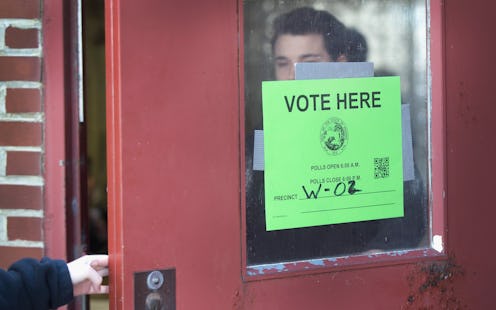News
The Weird Way Independents Can Vote In WA Primary
The Washington state GOP presidential primary is set to take place on Tuesday, May 24. Although Donald Trump is the only Republican candidate currently left in the race, he is not the only candidate on the state's ballot. That's right: If you're a Washington resident, you can still vote for Sen. Ted Cruz, Ohio Gov. John Kasich, and, surprisingly, retired neurosurgeon Ben Carson. So does that mean independents can vote in the Washington primary and try to skew Trump's all-but-certain win? It's definitely possible for them to vote, but the process is a little weird.
Washington state gives independent voters the chance to cast their ballots during the primary election. However, there's a catch: Independents must sign a form stating that they're either a Republican or a Democrat. So, for one day independent voters must affiliate themselves with one of the two major parties. Choose wisely, independents.
The Washington state government describes the party declaration form as the following on its website:
You must sign a political party declaration on the ballot return envelope. The declaration signed must match your voted candidate's political party.
There's also another major note about party affiliation: Washington state has both a caucus and a primary, which may confuse voters.
If you're a Washington citizen who voted in the caucus months ago, then you must vote in the primary under the same party you declared for the caucus. So, if you are an independent who voted as a Democrat in the Democratic Caucus, then you can't vote as a Republican in the primary.
If you're wondering why independent voters — or Republican voters, for that matter — would bother going to the polls when Trump is technically the only candidate left in the race, it turns out the primary is not as settled as we thought. Candidates like Cruz, Kasich, and Carson can still take some of Trump's delegates. It likely won't be enough to hurt Trump, but the election has been pretty unexpected until now, so nothing would surprise me at this point.
Trump is well on his way to securing the party nomination, already claiming 1,161 delegates of the needed 1,237 delegates for the nomination. No other GOP candidate came close; Cruz tallied up 567 delegates, while Rubio and Kasich trailed with 166 and 160 delegates, respectively. So though a major upset for the presumptive nominee in Washington wouldn't actually do much in the long haul, it would certainly be a blow to Trump's confidence heading into the general election.
